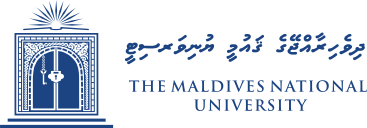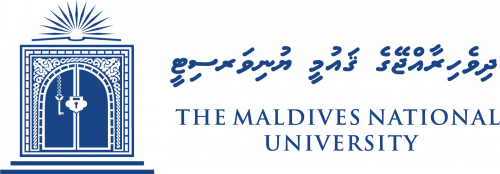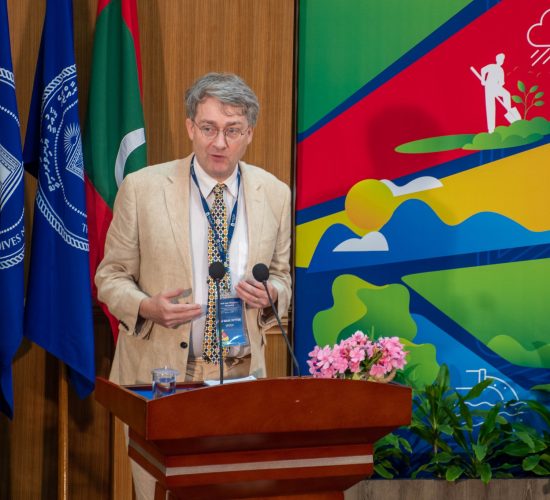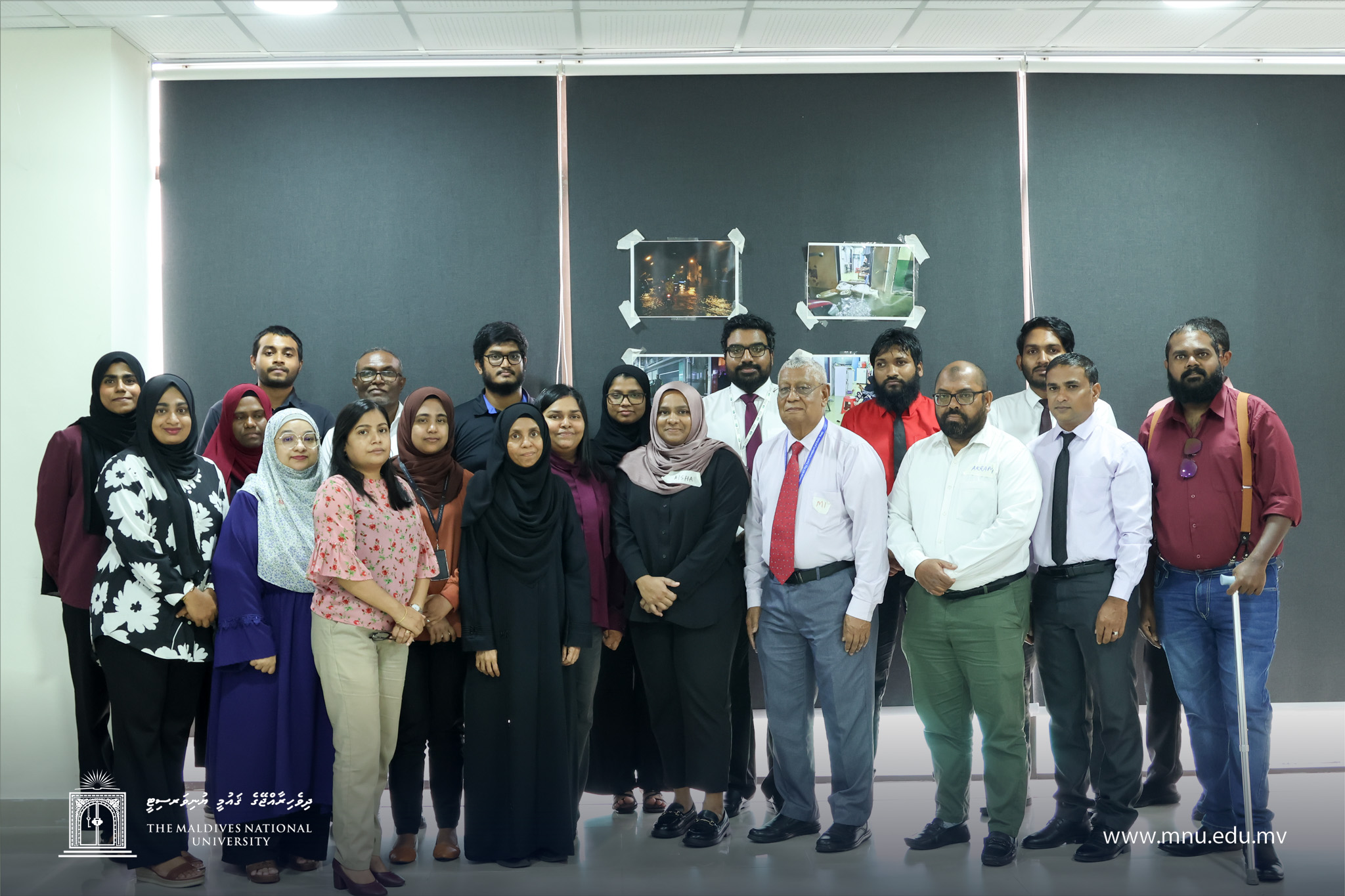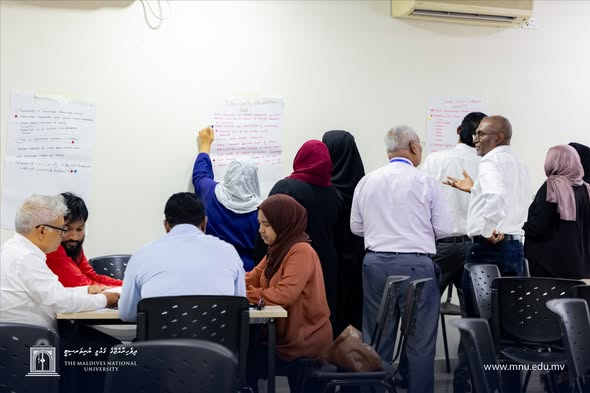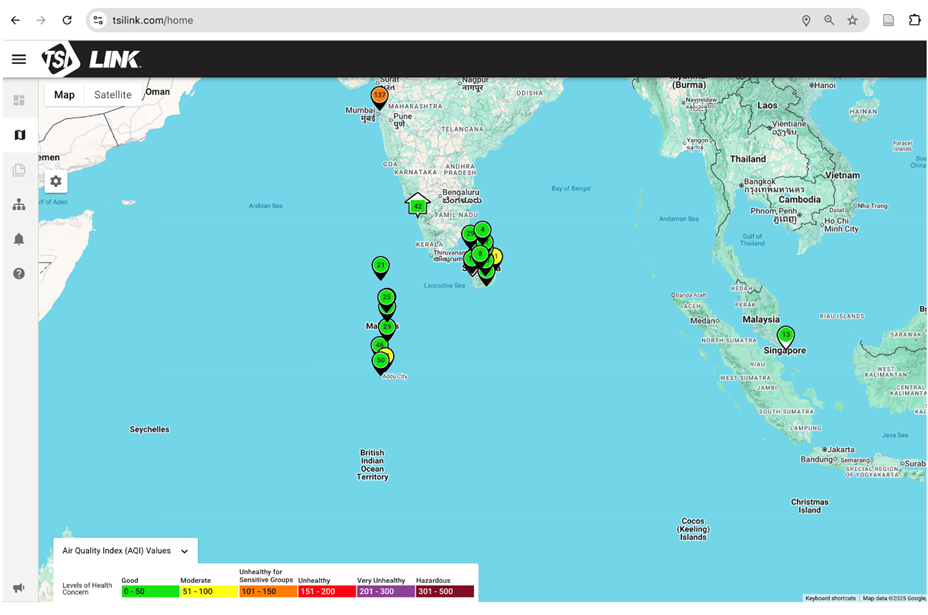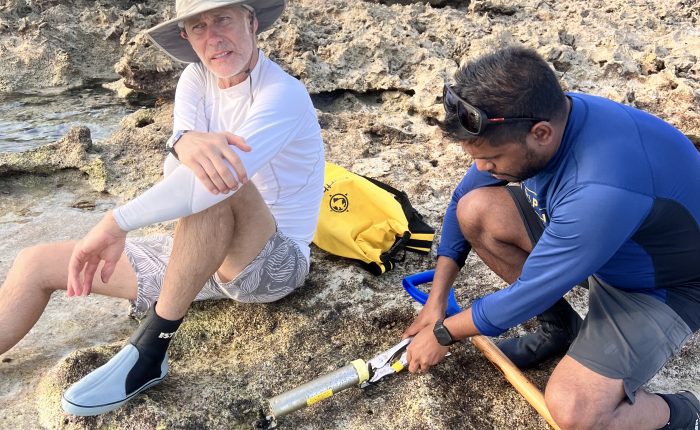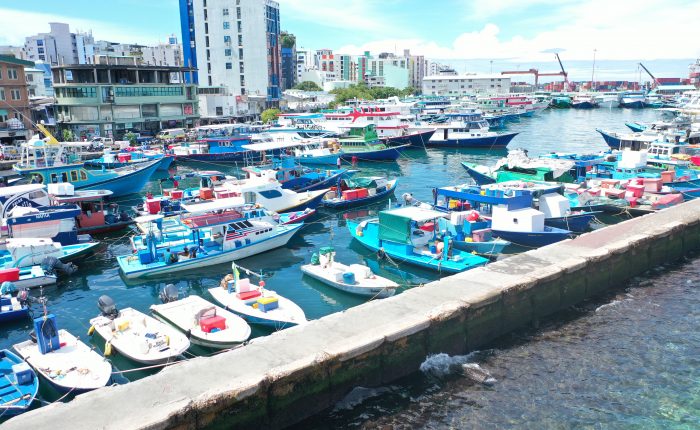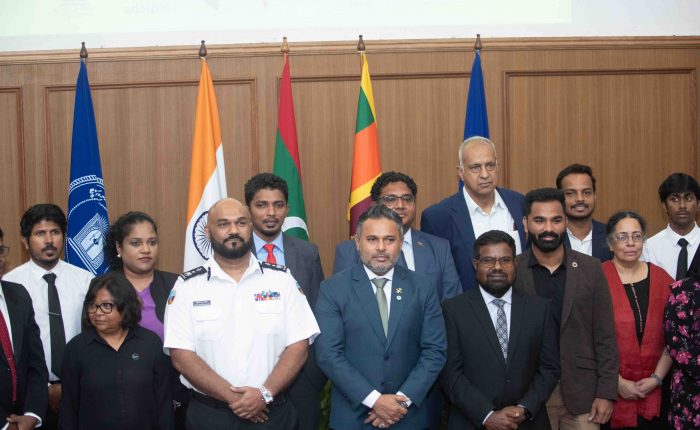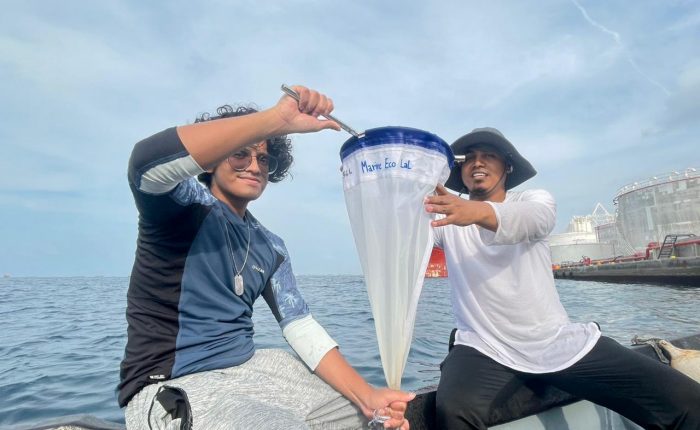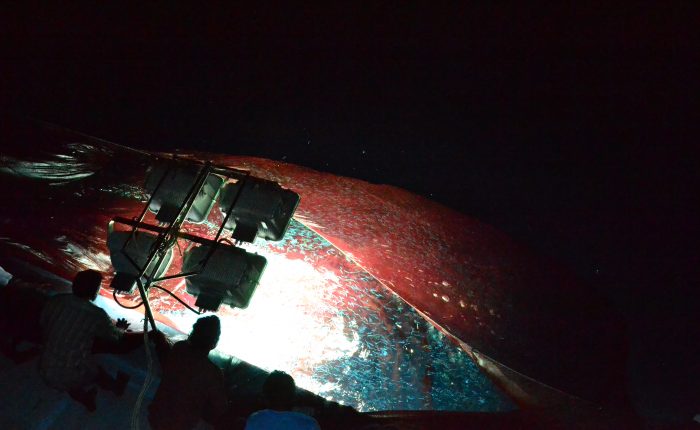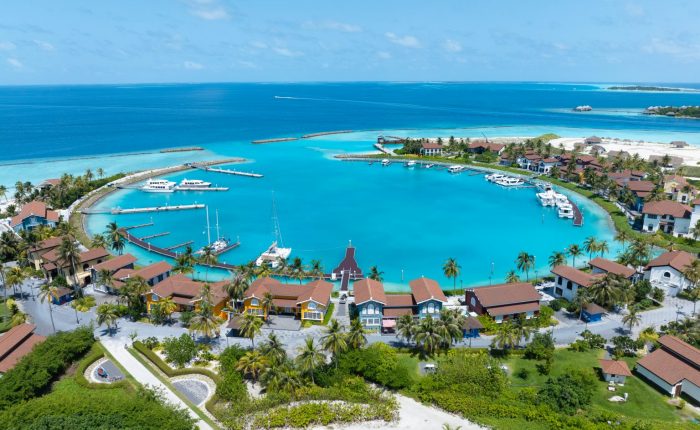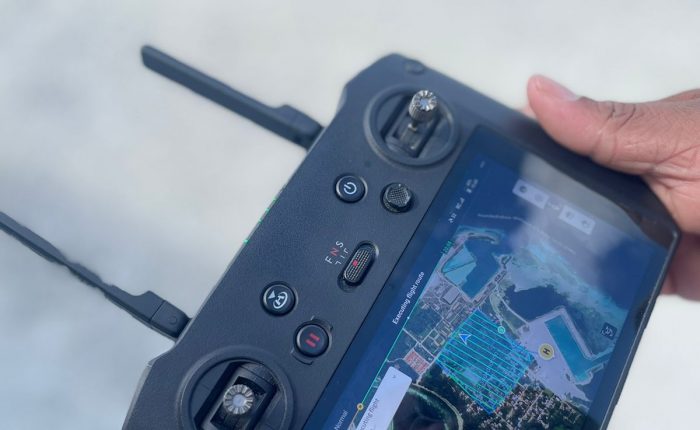The Clean and Healthy Oceans: Sustainable Nitrogen for the Maldives project, funded by UNEP, aims to reduce nitrogen pollution and protect marine ecosystems through evidence-based research, targeted interventions, and strengthened national policies. Led by The Maldives National University (MNU), the project focuses on data collection, modelling, and awareness initiatives that promote sustainable practices and encourage investment in innovative solutions such as ‘Nitro-Finance’. These efforts are designed to create long-term, system-wide benefits for ocean health across the Maldives.
The project will work towards completion of the activities designed under the following key components:
1. Strengthened national and international policies for sustainable nitrogen management will provide examples for sharing with other regions and SIDS.
2. Adoption of sustainable nitrogen management practices.
3. Nitrogen education across school, university and continuous professional development (CPD).
4. The capacity building for quantitative assessment, demonstration and mobilisation.
